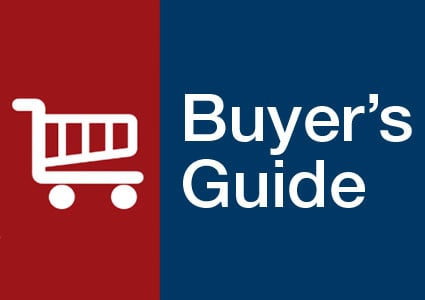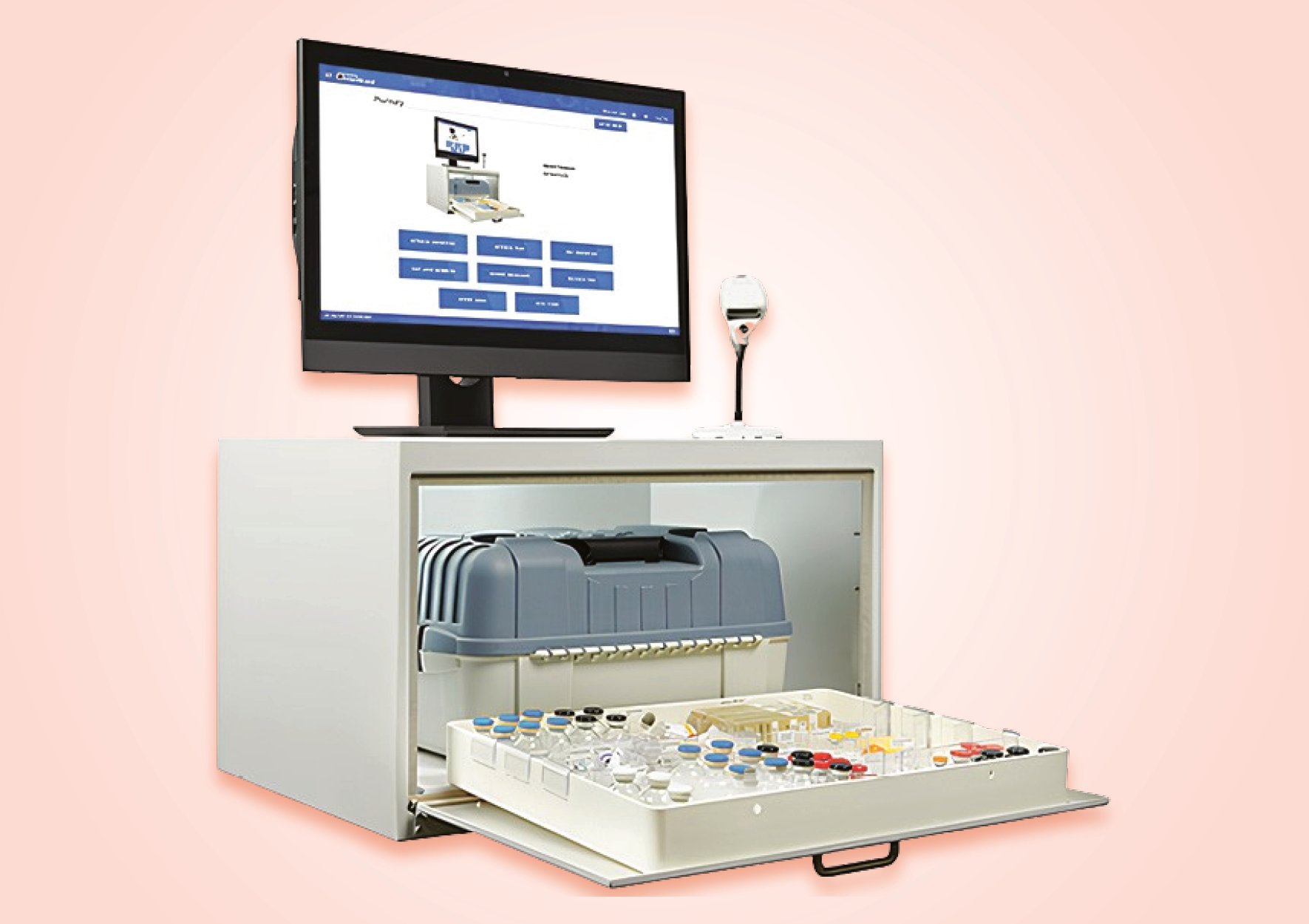- Show Menu
- Contact Us
- FAQs
- Reader Service
- Survey Data
- Survey Winners
- Testimonials
- Upcoming Events
- Webinars
- White Papers
Develop an Approved Vendor Program for Outsourced Compounding
Outsourcing compounded sterile products (CSPs) is often a practical short- or long-term solution for many hospital pharmacies. There are myriad reasons why pharmacy would choose to outsource various CSPs, including product quality, facility capacity, drug cost, usage changes, and staff capability. It is the responsibility of pharmacy management to carefully evaluate outsourcing opportunities, keeping in mind issues such as patient care, quality of drugs, medication stability, turn around time, pricing, and USP <797> compliance.
The hospital pharmacy is ultimately accountable for the quality of all medications that it supplies—including outsourced CSPs—making it vital for pharmacy management to perform due diligence when selecting an outsourced compounding vendor. While overall quality, including USP <797> compliance, must be evaluated, and outsourced compounding vendors should be able to provide a list of their capabilities including a summary of their quality-assurance programs, hospital pharmacy directors should also require more extensive information to make a well-informed decision as to the quality of potential outsourcing vendors. After all, it is the pharmacy director’s duty to provide patients with superior sterile IVs and CSPs.
Developing an approved vendor program can help in the process of choosing an outsourced vendor. To determine if a vendor qualifies for approved vendor status, the hospital pharmacy must commit the time and resources
necessary to conduct an audit of the vendor’s facilities, create a written report of their findings, and then work with the vendor to address any issues that arose during the audit.
On-site Audits
An on-site audit is the best way to assess a vendor’s USP <797> compliance program. Prior to the scheduled audit, make sure to submit an agenda to the potential outsourcing vendor. Remember to allow sufficient time for the appropriate records to be compiled for review during the audit. The audit agenda should include:
• Introductions/goals
• Licensing and certification review
• Facility tour
• Batch reload review of a specific CSP
• Stability, sterility, and pyrogenicity tests
• Personnel training records
• Summary/close-out
Plan on a four- to eight-hour visit, and include staff members who are well versed in <797> procedures on the audit team. The audit should be professional and focused, and any issues that may be incendiary should be tabled for senior management to discuss at a later date.
Facility Tour
Insist on a tour of the compounder’s facility, paying special attention to the clean rooms. The tour will provide the audit team with valuable information on the outsourcer’s compliance levels. While on the tour, take note of the garb and gowning protocol, and observe whether personnel actually follow these requirements. If possible, ask to observe the operator’s aseptic technique.
Inside the cleanroom, begin by checking out the overall cleanliness and organization. Make sure to inspect the equipment, being mindful of calibration stickers and expiration dates. In addition to surveying the overall design of the clean room, pay particular attention to materials of use, HEPA capacity, air flow, location of returns, use of laminar flow hoods, and classification certification. These all serve as clues for the risk of potential contamination.
Next, ask to see the inventory storage and distribution areas, which should include designated quarantine and release product areas. Check product and case labeling to see if there is the potential for product mix up.
Documentation Review
The audit team should review quality control documents, compounding records, and standard operating procedures (SOPs) to assess the level of USP <797> compliance at a third party contract compounding facility. Formal policies, procedures, quality testing documents, batch records, training files, appropriate licenses, and certifications should be checked for compliance. Request a synopsis of any federal or state agency inspections of the outsourcing company. If the compounder has been supplying IV products to your hospital already, choose a product (perhaps one that has had a recent issue), and using the appropriate bar code and lot number, follow the manufacturing process from receipt of raw materials through compounding, filling, personnel training, environmental monitoring, sterility, and pyrogen and stability results, if appropriate. This quality trail should enable the audit team to affirm the USP <797> compliance level of the outsourcing partner.
Audit Observations
Any observations of noncompliance to USP <797> regulations noted during the audit should be reported to hospital pharmacy senior management. Noncompliance should be classified as major or minor, depending on how severe of a risk is posed to patient care. For example, major observations could include the failure to conduct sterility tests, a lack of environmental monitoring, or inadequate equipment or facilities. These types of deviations can have a significant effect on IV quality. Communicate any concerns relating to major noncompliance with USP<797> to the vendor right away, and determine the vendor’s intentions regarding a corrective action program. You may want to perform a follow-up audit at a later date to verify what changes were enacted.
Minor observations are those that do not immediately impact IV quality, such as lack of appropriate written procedures for ancillary tasks, failure to regularly change out tacky mats, or not rotating sanitization procedures. Minor observations should be shared with the vendor during the close-out meeting.
Close-Out Meeting
At the conclusion of the audit, the team should take 15 minutes to privately discuss their observations and the quality practices at the facility. Items of importance to the hospital pharmacy should be prioritized from major to minor. The audit team should then present their observations to vendor senior management. Keep this meeting brief, as it is intended to be a presentation only, any extended discussion of topics should be minimized. At the end of the meeting, inform the vendor that an audit report will be submitted, with a written response expected in turn.
Audit Report and Response
The audit report highlighting any major deficiencies should be submitted to hospital pharmacy senior leadership for review. Once the report is approved, forward it to the outsourcer and include a deadline for their response. The vendor’s response is critical and will provide insight into the short- and long-term quality agenda of the company.
If the audit team is satisfied with the responses received, they should be forwarded to hospital pharmacy leadership with a recommendation to grant approved vendor status to the outsourcer. If the responses are not acceptable, the audit team should request further clarification from the vendor. If this additional request is not satisfied, a non-approval recommendation should be forwarded to the hospital pharmacy management.
Approved Vendor Status
Once the site visit report and vendor’s response have been reviewed and deemed satisfactory, the audit team can inform the purchasing department that the outsourcer has met hospital quality acceptance criteria and is an approved vendor. By conducting this due-diligence process, the hospital demonstrates its commitment to working only with vendors that use quality compounding processes, and, in turn, it provides the outsourcer with more opportunities for future business.
In conclusion, establishing an approved vendor verification process allows hospital pharmacies to assess the overall quality of an outsourcer’s CSPs before committing to a long-term contractual agreement. This approach allows for more informed decision-making when choosing among the many outsourcing alternatives. By investing the time upfront, issues can be proactively identified and resolved, thus avoiding potential recalls. With an approved vendor program, the hospital pharmacy can effectively manage the quality of its outsourced CSPs while enjoying the benefits of superior coordination with its outsourcing partners.
Fran McAteer is vice president of quality at Microbiology Research Associates, Inc, an FDA-registered contract microbiology-testing laboratory specializing in USP testing for pharmaceuticals, biologics, and medical devices. The author has expertise and experience in implementation of USP <797> programs for hospital pharmacies and acts as a consultant for many hospitals.
William W. Churchill, RPh, MS, received a BS in pharmacy and a MS in hospital pharmacy from Northeastern University’s College of Pharmacy and Allied Health, and earned a certificate in health care management from Boston University’s Graduate School of Management. In addition to serving as the executive director of pharmacy services for Boston’s Brigham and Women’s Hospital, Churchill is also a clinical professor of pharmacy practice at Northeastern University’s Bouve College of Health Sciences. Churchill is also a member of Pharmacy Purchasing & Products’ editorial advisory board.
Like what you've read? Please log in or create a free account to enjoy more of what www.pppmag.com has to offer.








